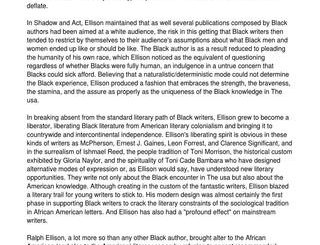
The contention of this paper which is contrary to popular thought is that Africa, just like other continents, has had a definitive and significant effect on the development of the ecumenical movement in general and its mission mandate in particular. The role of Africa at the World Missionary Conference held in Edinburgh in 1910, a meeting that gave this movement its formal birth is analyzed and reinterpreted by the writer, Efiong Utuk.
He argues that the ecumenical past of Africa is not widely known, not because of lack of evidence, but that works only alluded to it. The movement, he observes, did not arise neither because of any particular biblical or missiological injunctions nor the erroneous view that western and other missionaries loved fellowship more than Africans. Among other reasons, the movement was a result of the need created by the complexity which the African and other missions fields brought to the surface as foreign missionaries sought to translate their differing understanding of the Christ into African and other cultural situations. Some perennial questions which came out of Africa made the following issues very relevant : the impact of African social conditions on missions, the effect the persistence of indigenous cultural and primal religious values had on Christian evaluation of other religions, the effect of the rise of indigenous African churches on church-mission relations, the impact of the race problem and calls for equality and justice on ecumenical consciousness.
No other mission field generated more shock waves than the African field at Edinburgh. It found out that African social conditions called for special missiological intervention. In the light of these challenges, Edinburgh introduced the idea of the whole Gospel by the whole church to the world. At Edinburgh, the making of ecumenical attitudes towards other religions received a boost from Africa. The writer assessed several moral, intellectual and political hindrances which realistically hamper cooperative action.
It was recommended at Edinburgh that the time had come to put away prejudice and realistically study the African situation from the natives themselves in a bid to understand the local conception. The African world, the recommendation suggested was teaching the evangelical world that missionaries must be patient in evangelizing this continent since affecting a belief system is far more complicated and time-consuming than earlier envisaged.
Edinburgh saw Ethiopianism (a religious movement that embodied the earliest stirrings towards religious and political freedom in the modern colonial period) as a natural reaction such as has been seen on countless occasions in the history of the church.
On the issue of race relations, equality and justice, Edinburgh was quite aware of how native Africans were looked down upon and the disabilities and harsh conditions to which black Americans were subjected. It admitted that the ”civilized nations” were not omnipotent and called for missionary co-operation and unity. Commission VII of Edinburgh impressed the importance of cooperation as raised by contemporary Africa.
It is incontrovertible that Africa had a determined effect on the development of the ecumenical movement even during the colonial ear and that its participation predates contemporary emphasis on personalities and regional representation.
It is obvious that ecumenism would not have gathered momentum when it did if individual missionary societies were able to single-handedly resolve the problems they encountered in the African and other mission fields, hence stressing the need for co-operation. The African story is particularly interesting because, like Nazareth, few expected any serious missiological challenge to arise from that continent, mistakenly and arrogantly dubbed the ”dark continent.” Edinburgh must be acclaimed for seeing that Africans had not manufactured a separate God of their own but only had their own brand of the universal God. It must be praised for affirming the daring but truthful statement that the Holy Spirit was already at work in Africa long before the missionaries arrived. Dr. Eze hammered this point home when he commented on his grandfather”s perception about the most high God. This is worth noting in assessing Africa”s contribution to ecumenism.
While it is true that his grand father (Muogbo) worshiped his local deities and adored/acclaimed his ancestors, it must also be stated with all fairness that he had a idea of the most high God. To state therefore that Africans had no idea of the Supreme God is a misleading oversimplification. Though Ethiopianism was seen as a natural reaction, Edinburgh probably underestimated this phenomenon as incapable of resisting the disintegration and corruption impact of the surrounding old order. The ecumenical movement did not arise because the western nations loved fellowship more than Africa. In fact, the idea of communal living is not strange in Africa.
Christians, particularly those living in Africa, must familiarize themselves with this publication of Efiong Utuk since he realistically revisited Edinburgh, 1910, and reassessed the invaluable contributions of Africa.
Proudly WWW.PONIREVO.COM
Source by Oliver Harding



